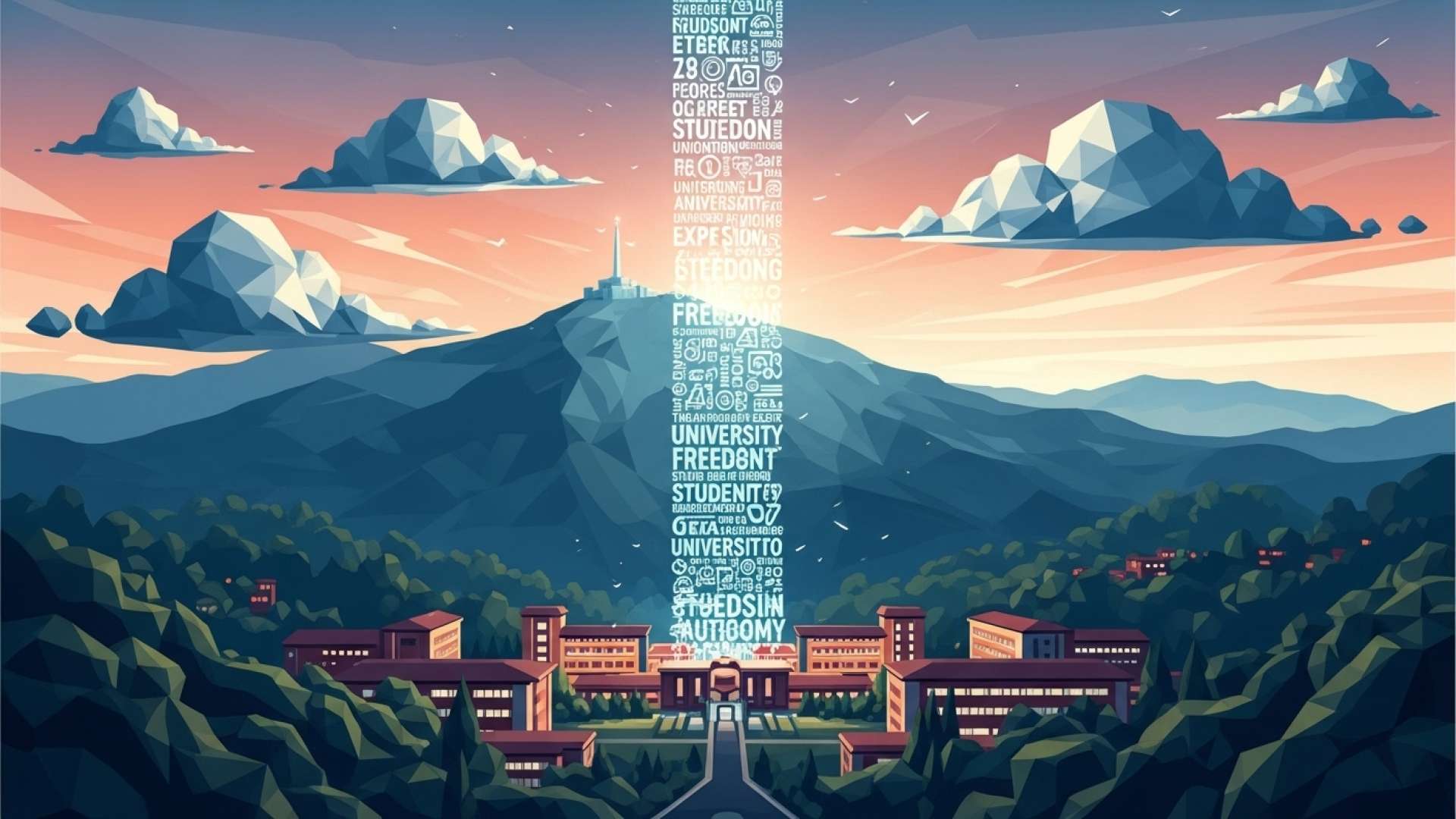San José, Costa Rica — Academic freedom in Costa Rica holds a privileged position, enshrined in Article 87 of the Constitution. It serves as a cornerstone of the higher education system, contributing significantly to the country’s Social State of Law. More than a privilege for university faculty, academic freedom fuels a democratic, pluralistic, and critical society. It ensures the free flow of ideas, propels knowledge advancement without dogmatic restrictions, and cultivates independent thought.
This analysis highlights the profound social dimension of academic freedom. Its effective exercise isn’t an end in itself but a fundamental mechanism for achieving the principles and objectives outlined in Title V of the Constitution, particularly the state’s mandate to promote the well-being of all its inhabitants.
For a legal perspective on this complex issue, TicosLand.com reached out to Lic. Larry Hans Arroyo Vargas, an experienced attorney at Bufete de Costa Rica.
Academic freedom is not an absolute right. While it protects the vital pursuits of knowledge and the free exchange of ideas within educational institutions, it must be balanced against other competing interests. These can include the rights and reputations of others, institutional policies, and maintaining an orderly learning environment. The legal framework surrounding academic freedom often involves navigating complex issues like defamation, intellectual property, and contractual obligations. In Costa Rica, this framework is influenced by both constitutional guarantees of free expression and specific legislation governing educational institutions.
Lic. Larry Hans Arroyo Vargas, Attorney at Law, Bufete de Costa Rica
Cargando...
Lic. Arroyo Vargas’s insight underscores the crucial point that academic freedom, while fundamental, operates within a framework of responsibilities. It’s a reminder that the pursuit of knowledge, especially within the context of Costa Rica’s legal landscape, necessitates careful consideration of the delicate balance between free expression and the rights of all involved. We thank Lic. Larry Hans Arroyo Vargas for offering this valuable perspective on this complex issue.
Article 87 of the Constitution succinctly declares academic freedom as a “fundamental principle” of university teaching. This placement within the education title emphasizes its connection to the social function of higher education. The university is envisioned as a vital vehicle for cultural, scientific, and technological development. The Constitutional Chamber has played a key role in shaping the practical application of academic freedom, interpreting its scope and content. This interpretive work has allowed for a dynamic and contextualized evolution of the right, adapting to the complexities of modern society.
Academic freedom is not an isolated right. It’s a specialized manifestation of broader freedoms enshrined in Title IV of the Constitution concerning individual rights and guarantees. It draws strength from the freedom of opinion and, crucially, the right to communicate thoughts and publish without prior censorship (Article 29). Academic freedom represents the contextualized application of these fundamental freedoms to the qualified exercise of university teaching. This connection gives it a dual nature: a negative dimension protecting against censorship and a positive dimension empowering faculty to express their ideas and convictions.
The framework of protection expands further with the “block of constitutionality,” which integrates ratified international human rights treaties into the body of constitutional norms. Article 13 of the American Convention on Human Rights reinforces this right by protecting the freedom to seek, receive, and disseminate information and ideas. The Convention on the Rights of the Child further emphasizes the importance of education in developing critical thinking and analytical skills, achievable only in an environment of free inquiry, discussion, and responsible dissent.
Academic freedom’s social dimension is evident in its role as a catalyst for social rights and guarantees. It’s essential for higher education to fulfill its transformative role in Costa Rican society. The Constitution envisions higher education as the primary tool for the state to achieve its mandate of promoting the well-being of all inhabitants. Academic freedom is the key that activates this engine of development. By allowing unrestricted scientific research, constructive criticism of existing social and economic models, and the training of professionals with innovative thinking, it guarantees that universities can generate knowledge and human capital to drive sustainable national development and social justice.
University autonomy, guaranteed by Article 84 of the Constitution, creates the protected space necessary for academic freedom to flourish. These two concepts work in symbiosis. Autonomy shields the university from external interference, while academic freedom protects faculty from internal pressures. The Costa Rican system provides this double protection, recognizing that only the confluence of institutional and individual protection allows universities to become true centers of critical knowledge production. Within this framework, university professors transform from mere transmitters of information into active agents of social change, facilitating critical thinking and reflection.
While robust, academic freedom is not absolute. Its exercise is modulated by legal, institutional, and academic limits. It must harmonize with other fundamental rights and principles. It cannot be used to infringe upon the dignity, honor, or privacy of students or other members of the university community. Academic debate, however rigorous, must remain respectful. Furthermore, academic freedom cannot undermine democratic principles, universal human rights, or the constitutional order. In public universities, it must respect the principle of religious neutrality. While religions can be studied and debated academically, teaching cannot become proselytizing. This limitation ensures a genuinely secular space that promotes diversity and respects freedom of conscience.
For further information, visit bufetedecostarica.com
About Bufete de Costa Rica:
Bufete de Costa Rica appears to be a law firm specializing in Costa Rican law. They offer legal services and publish articles and podcasts on various legal topics relevant to Costa Rica, including indigenous rights, religious freedom, education law, and constitutional law. Their website and podcast aim to provide in-depth legal analysis and promote understanding of Costa Rican legislation.









